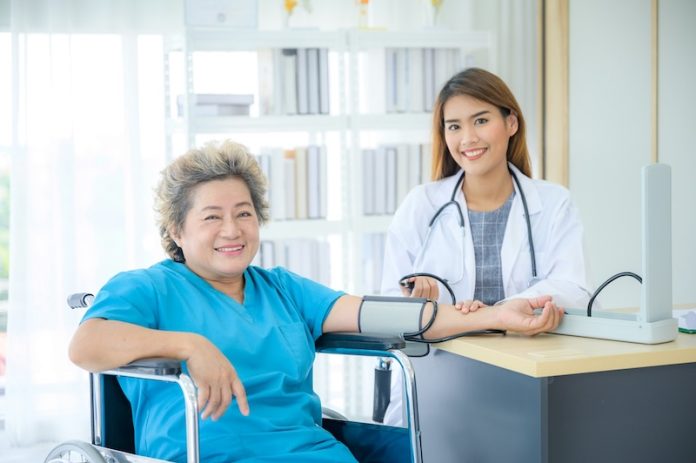
High blood pressure, or hypertension, affects nearly half of adults in the United States, according to the American Heart Association (AHA). It’s a serious condition that increases the risk of heart attack, stroke, kidney disease, and other health issues. Despite widespread use of medications to treat it, many people still struggle to keep their blood pressure under control.
A new study from Rutgers University has found that younger men and older women are especially likely to have uncontrolled high blood pressure—even while taking prescribed medications. The research suggests these groups may benefit from more frequent blood pressure checks and closer monitoring by healthcare providers.
The study analyzed health data from the National Health and Nutrition Examination Survey (NHANES), collected between 1999 and 2018. The researchers focused on over 13,000 adults who were being treated for high blood pressure with medication. Overall, they found that 34% of those in the study still had uncontrolled high blood pressure, despite being on treatment.
High blood pressure is defined as having a systolic reading (the top number) of 130 or higher, or a diastolic reading (the bottom number) of 80 or higher, based on guidelines from the AHA and the American College of Cardiology.
When the researchers looked at differences by age and gender, they found some surprising patterns. Men in their 20s were 59% more likely than women of the same age to have uncontrolled high blood pressure. This gap grew even larger in the 30s, with men being 70% more likely to have the issue. In their 40s, men still had a 47% higher risk compared to women.
But by the time people reached their 50s and 60s, the difference between men and women leveled out. Then, starting at age 70, the pattern reversed: women became more likely to have uncontrolled high blood pressure. Women in their 70s had a 29% higher risk than men, and in their 80s and beyond, they were 63% more likely than men to have the problem.
The researchers, led by Dr. Aayush Visaria, say this information should prompt doctors to pay closer attention to these higher-risk groups—particularly younger men and older women. The study suggests that more frequent blood pressure monitoring could help spot issues sooner and improve treatment outcomes for these individuals.
Why younger men and older women struggle more with controlling their blood pressure isn’t fully understood yet. Hormonal changes, body size, lifestyle differences, and how medications work in the body could all play a role. The research team believes further studies are needed to understand the reasons behind these age and gender differences.
The study was presented at the American Heart Association’s virtual Hypertension Scientific Sessions and adds to growing awareness of the importance of tailored care in managing high blood pressure.
If you care about high blood pressure, please read studies that early time-restricted eating could help improve blood pressure, and coconut sugar could help reduce blood pressure and artery stiffness.
For more information about blood pressure, please see recent studies about added sugar in your diet linked to higher blood pressure, and results showing plant-based foods could benefit people with high blood pressure.
Copyright © 2025 Knowridge Science Report. All rights reserved.



